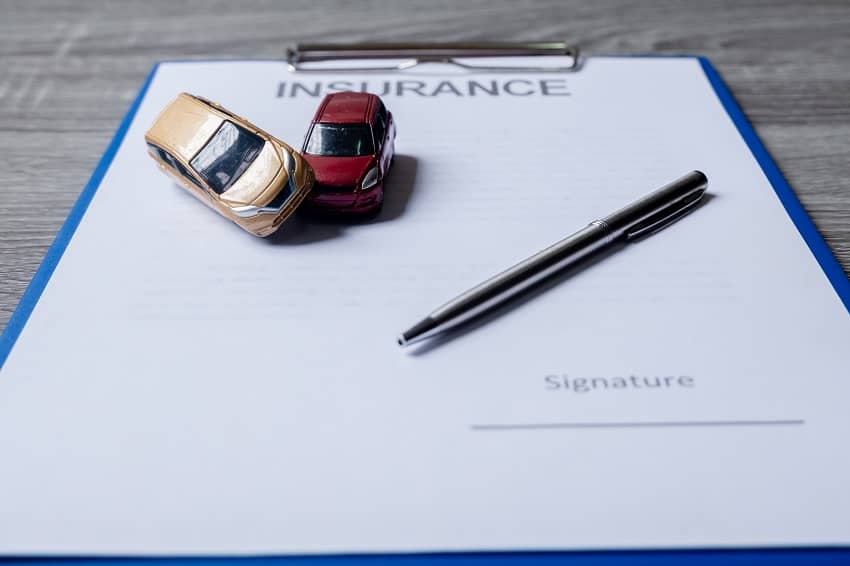Car insurance typically goes down when a driver reaches the age of 25 or after having a clean driving record for several years. As drivers gain more experience and a history of safe driving, insurance companies view them as less of a risk and are therefore able to offer lower premiums.
Lowering coverage limits and increasing deductibles can also decrease insurance costs. It’s important to shop around for the best rates and keep an eye out for discounts such as bundling policies or having safety features installed in your car. By taking these steps, drivers can save money on their car insurance over time.
Table of Contents
Factors That Affect Car Insurance Rates
When it comes to car insurance rates, it can be challenging to understand why they fluctuate. Many factors influence car insurance rates, and it’s essential to stay current with those factors. This guide will help you understand the primary factors influencing car insurance rates and provide you with tips for potentially reducing your premiums.
Explain How Car Insurance Rates Are Determined And Factors That Influence Them.
Car insurance rates vary because they’re based on a combination of factors. Insurance companies use algorithms to calculate driver risk, which leads to differences in premiums. Some of the key factors that determine car insurance rates include:
- Age
- Driving record
- Location
- Type of car
- Coverage selection
Discuss The Various Elements Taken Into Consideration Such As Age, Driving Record, Location, Type Of Car, And Coverage Selection.
Age: younger drivers typically pay higher premiums than older drivers because they’re considered a higher risk. Statistics show that younger drivers are more likely to get into accidents or drive recklessly.
Driving record: your driving record has a significant impact on your car insurance rates. If you’ve been in multiple accidents or have a history of traffic violations, you’ll likely pay more for insurance than someone with a clean driving record.
Location: your location plays a role in determining car insurance rates because it affects the likelihood of accidents occurring. Drivers in metropolitan areas typically pay more for insurance than those living in rural locations.
Type of car: the type of car you drive can impact your car insurance rates. Luxury cars and sports cars have higher premiums because they’re more expensive to repair or replace in the event of an accident.
Coverage selection: the type and amount of coverage you select can impact your car insurance rates. Comprehensive coverage is more expensive than liability coverage because it typically covers a broader range of incidents.
Highlight Specific Factors That Could Potentially Decrease Your Car Insurance Rates.
While some factors may be out of your control, there are things you can do to potentially reduce your car insurance rates. Here are a few:
- Consider raising your deductible. A higher deductible can help lower your premiums, but you’ll need to pay more out of pocket if you get into an accident.
- Take a defensive driving course. This could lead to a discount on your car insurance rates.
- Shop around for car insurance quotes. Comparing rates from different companies can help you find the best coverage at an affordable price.
- Maintain good credit. Insurance companies often consider credit score when calculating premiums, so try to keep your credit score as high as possible.
Many factors impact car insurance rates, but understanding them is essential. By knowing the key factors that determine rates and taking actions that could potentially reduce them, you can stay protected on the road and avoid paying too much for coverage.
When To Expect A Discount On Car Insurance Rates
Everyone wants to save money on car insurance rates, and luckily, several factors go into determining discounts. Unfortunately, a specific age or number of years behind the wheel does not guarantee a discount. However, based on your driving experience and age, you may be eligible for a discount.
Discuss When Drivers Are Most Likely To See A Decrease In Their Car Insurance Rates
If you want to expect a discount on car insurance rates, then you should:
- Have a clean driving record: When you avoid accidents or traffic violations, you prove that you are a safe driver and worthy of a discount.
- Purchase a vehicle with safety features: The more safety features your car possesses, the less likely you will be involved in an accident, resulting in a discount.
- Manage your credit score: Insurance companies assume that drivers with good credit scores are responsible and less likely to file claims.
- Stay loyal to your insurance company: Granted, loyalty has its perks. Staying with an insurance company for a prolonged period means your risk level decreases over time, and you become eligible for a discount.
Explain The Connection Between Age, Driving Experience, And Discounts On Car Insurance Rates
Your age and driving experience create the possibility of a discount.
- Young drivers: Insurance companies view young drivers as high risk since they assume young drivers lack the experience necessary to drive safely on the road. Insurance companies offer lower rates once you’ve reached the magic age of 25.
- Senior drivers: Senior drivers typically have years of experience behind the wheel and tend to drive fewer miles than younger drivers due to retirement. Thus, you can expect discounts for demonstrating responsible driving habits for drivers over 55.
- Good student discount: If you are enrolled in high school or college and have a gpa of 3.0 or higher, many insurance companies offer discounts to young drivers that prioritize their education as well as their driving.
Provide Specific Examples Of Scenarios Where Drivers Are Eligible For Discounts And How They Can Take Advantage Of Them
It’s one thing to know about discounts, but it’s another to understand how to apply for them.
- Usage-based discounts: Many insurance companies offer usage-based discounts dependent on the miles driven and driving habits. For example, pay-per-mile insurance companies allow you to pay premiums based on the number of miles driven. Another type of usage-based insurance is the plug-in device, which tracks and records your driving habits and reduces premiums if you drive safely.
- Military discounts: Members of the military have access to car insurance discounts since they’re low risk and lead responsible lifestyles.
- Multi-car discounts: If you own multiple cars, you’ll be able to apply for a multi-car discount.
- Employee discounts: Insurance companies often partner with employers to offer discounted car insurance rates, ensuring a more affordable option for employees.
To take advantage of these discounts, reach out to your chosen insurance provider and ask about discounts available. Often times, the application process is quick and easy, allowing you to benefit from the discount instantly.
Car insurance discounts are available for drivers of all ages, provided that drivers exhibit safe and responsible driving habits. By taking advantage of the discounts available to you, you’ll reduce your premium costs and reap the benefits of smart driving.
How To Lower Your Car Insurance Rates
Car insurance is a must-have for vehicle owners, but getting cheap car insurance is even better. To reduce your car insurance rates, take the following actionable steps:
- Choose a car that costs less to insure: Insurance companies typically charge more to insure certain types and models of cars. If you want to pay less for car insurance, purchase a car that is less expensive.
- Increase your deductible: Raising your deductible can lower your car insurance premium, but remember that you will pay more money out of pocket if you have an accident.
- Maintain a good driving record: Maintaining a good driving record is one of the best ways to decrease your car insurance rates. Avoid accidents, tickets, and other traffic violations that result in points added to your driving record.
- Bundle policies: Consider bundling your car insurance with other types of insurance to save money. Insurance companies often offer discounts if you have multiple policies with them.
- Take advantage of discounts: Insurance companies offer many discounts including safe driver discounts, multi-policy discounts, and good student discounts. Make sure you are aware of the discounts offered by your car insurance company and take advantage of them.
- Choose a higher liability limit: Purchasing higher liability coverage may increase your premium but can save you money in the long run by reducing your financial liability in case of an accident.
- Avoid unnecessary coverage: Evaluate your insurance policy and eliminate any coverage that you don’t need. For example, if you don’t have a loan on your car, you may be able to forego collision and comprehensive coverage.
- Improve your credit score: Insurance companies use credit scores as a factor to determine car insurance rates. Improving your credit score can help reduce your car insurance premiums.
- Attend a defensive driving course: Taking a defensive driving course can help lower your car insurance rates and also improve your driving skills.
- Shop around: Don’t be afraid to shop around for car insurance. Compare quotes from different companies before making a final decision.
By following these practical tips, you can reduce your car insurance rates and save money in the long term.
What To Do If Your Car Insurance Rates Don’T Decrease
When it comes to car insurance, it’s common to assume that rates will decrease over time. However, there are certain scenarios where your rates may not go down as expected. In this section, we’ll explore those situations and offer solutions for drivers who find themselves in a similar position.
Discuss Some Scenarios Where A Decrease In Car Insurance Rates May Not Be Possible.
- If the driver has had multiple accidents or traffic violations, their insurance rates may not decrease as expected. Insurance providers view these drivers as high-risk, making it difficult for them to qualify for lower rates.
- In some states, insurance providers are not required to provide reduced rates based on age. Additionally, if the driver has had an accident or traffic violation, their rates may not decrease on their next renewal.
- Insurance rates may not decrease if the car is expensive to repair or replace. In this scenario, even if the driver has maintained a clean driving record, they may not qualify for lower rates due to the high cost of repairing or replacing the vehicle.
Offer Suggestions On What Drivers Can Do If Their Car Insurance Rates Do Not Decrease.
- If the driver has a clean driving record, they can consider switching insurance providers to find a better rate.
- Some insurance companies offer discounts for drivers who take safe driving courses. Drivers with multiple accidents or traffic violations may qualify for this discount.
- Another option is to increase the amount of the deductible for the insurance policy. While this will result in higher out-of-pocket costs in the event of an accident, it will lower the monthly insurance premium.
Advise On Alternative Insurance Options That Could Provide Better Rates Or Coverage.
- Drivers can also consider usage-based insurance. This type of insurance rates the driver based on their driving habits rather than general demographic information. This may result in lower rates for drivers with safe driving habits.
- Some insurance providers offer multi-policy discounts for drivers who bundle their home and auto insurance policies. This can result in lower rates for both policies.
While the decrease in car insurance rates is not possible in certain scenarios, drivers do have options. By switching providers, taking safe driving courses, increasing the deductible, and considering alternative insurance options, drivers may yet find a way to lower their insurance rates.
Frequently Asked Questions On When Does Car Insurance Go Down
How Long Does It Take For Car Insurance To Go Down After An Accident?
It typically takes 3 to 5 years for car insurance rates to go down after an accident. It also depends on the severity of the accident caused. Insurance companies determine rates based on a number of factors, including the driver’s record, age, and location.
Do Car Insurance Rates Go Down At 25?
Car insurance rates may go down at the age of 25. Most insurance companies consider drivers to be less risky as they age, which could result in lower rates. However, there are other factors that may impact rates as well, such as location, car type, and driving record.
Does Car Insurance Go Down After Paying Off The Car?
Car insurance rates may not necessarily go down after paying off a car. While it is a factor that is taken into consideration, other factors such as age, location, and driving record will also affect the rates that you pay for car insurance.
It is always best to check with your insurance provider to understand pricing.
Conclusion
As we conclude this blog post about ‘when does car insurance go down? ‘, it is important to note that there are various factors that determine the price of car insurance. Some of these factors include your driving record, age, car make and model, and location.
It is also crucial to keep in mind that while car insurance rates may decrease over time, they can also increase due to various reasons such as accidents or changes in your driving history. It is therefore important to regularly review your insurance policy to ensure that you are getting the best rates possible.
By taking the necessary steps such as maintaining a good driving record, driving a safe car, and comparing rates from different providers, you can reduce the cost of your car insurance over time. Always strive to stay informed about car insurance trends to make informed decisions and save money.





